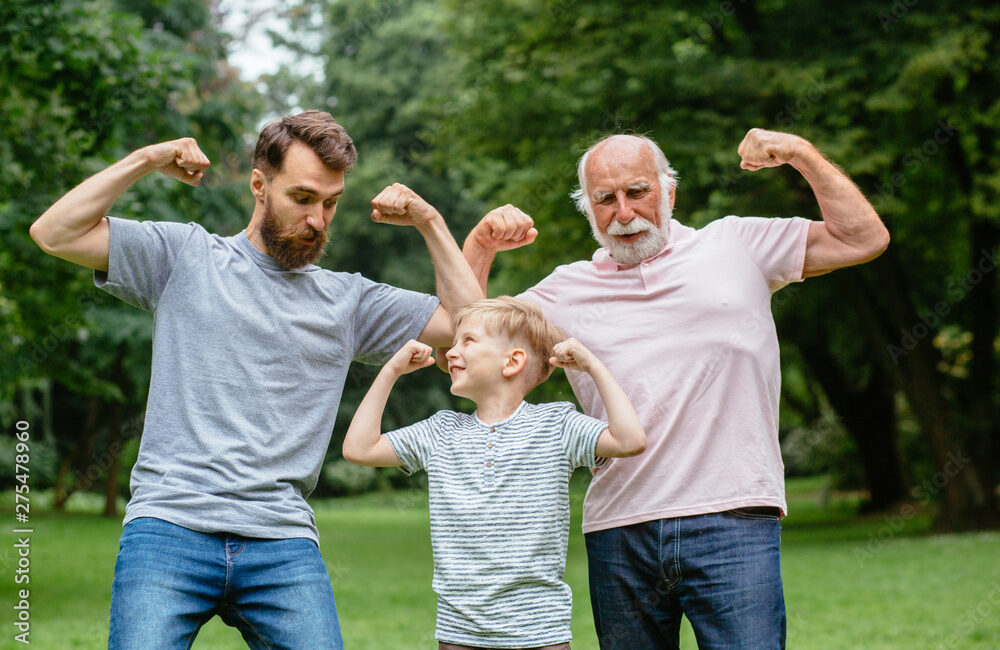November is here, and with it comes Movember—a month dedicated to raising awareness about men’s health issues, including mental health, suicide prevention, and physical health concerns like prostate and testicular cancer. At TheraSport Physical Therapy, we’re joining the movement by promoting the importance of preventive care, fitness, and mental wellness for men. Physical therapy can support men’s health goals and reduce risks associated with some common issues men face especially with mobility and even general health.
Reducing Injury Risk for Active Lifestyles
Physical Therapy can help you reduce the risk of injury. Everyone knows that maintaining an active lifestyle is critical for longevity. Whether you’re lifting weights, running, or staying active in your favorite sport, maintaining proper movement patterns is crucial for preventing injuries. We can assess your posture, gait, and muscle imbalances, helping you improve form and reduce risk factors that could lead to chronic issues like joint pain or tendinitis. If you are currently active or if you are considering a new activity, come in and get a mobility assessment so we can help you prevent injury.
Tip: Schedule a movement assessment to identify any weaknesses or imbalances that could lead to injuries down the line. TheraSport offers very affordable cash pay options for a wellness check and keep in mind Georgia allows direct access, so you can see a PT without a doctor referral.
Managing Stress and Mental Health Through Movement
Mental health is a major focus of Movember, as men are at higher risk for issues like depression and anxiety but often don’t seek help. Exercise, including structured physical therapy, has been shown to boost mood, reduce anxiety, and improve overall mental health by releasing endorphins. Physical therapy can be especially helpful for men recovering from injuries or dealing with chronic pain that may limit activity and contribute to stress.
Don’t give up on physical activity from pain. Get relief from your pain and get moving. Your quality of life will only improve and so will your lifespan. There are so many advances in therapy treatments, like dry needling, active cupping, traction, and specialized stretching support. We can help you gain freedom from your pain and get a new lease on life!
Tip: If chronic pain has kept you from staying active, physical therapy may help you regain mobility and find a workout routine that lifts your mood.
Addressing Men’s Cancer Risks, Recovery and Post-Treatment Needs
Unfortunately many men will have to deal with cancer. Fortunately modern medicine is able to help you beat cancer if detected early. Physical therapy can help with recovery from cancer treatment, if you have to go through that.
Testicular cancer typically affects younger men and can bring specific recovery needs, especially after surgery or chemotherapy. Physical therapy can help address muscle weakness, fatigue, and balance issues, supporting a healthy recovery after going through treatments.
Another big risk for men is prostate cancer. Prostate cancer is one of the most common cancers in men, and it often brings a host of physical challenges, especially following surgery or radiation. Many men experience pelvic pain, urinary incontinence, or muscle weakness post-treatment. Pelvic floor physical therapy can strengthen muscles, improve bladder control, and enhance overall pelvic health.
Tip: Men of all ages should be proactive about self-exams and regular health screenings to detect any potential issues early.
Stay Strong with Movember!
Movember is a great reminder for all men to prioritize their health—not just for the month, but year-round. By taking a proactive approach and incorporating physical therapy into your wellness routine, you can improve your physical strength, reduce pain, and enhance mental well-being.
At TheraSport Physical Therapy, we’re here to support men’s health every step of the way. Whether you’re recovering from an injury or want to optimize your health, our experienced team is ready to help. Book an appointment with us and take a step toward a healthier, stronger you.
Always in your corner,
TheraSport
Some references if you want to research any of these topics further:
Reducing Injury Risk for Active Lifestyles
- National Institutes of Health (NIH) – Studies on the effectiveness of physical therapy in preventing sports injuries and its role in optimizing movement patterns.
- American Physical Therapy Association (APTA) – Their website includes resources on injury prevention, particularly for athletes and active individuals.
Managing Stress and Mental Health Through Movement
- Mayo Clinic – Offers evidence on how exercise and physical therapy can improve mental health, reduce anxiety, and alleviate symptoms of depression.
- Movember Foundation – Provides specific data on men’s mental health challenges and highlights how physical activity is beneficial for mental health.
Addressing Cancer Recovery and Post-Treatment Needs (testicular & prostate)
- National Cancer Institute (NCI) – They provide thorough guides on testicular cancer treatment and the role of rehabilitation and physical therapy in recovery.
- Cancer.net by the American Society of Clinical Oncology (ASCO) – Information on testicular cancer, rehabilitation post-treatment, and physical therapy recommendations.
- American Cancer Society – They provide an overview of prostate cancer treatment side effects and recovery options, including physical therapy’s role in managing urinary incontinence and pelvic health.
- National Institute on Aging – Offers research-backed information on the importance of pelvic floor exercises for aging men, particularly after prostate cancer treatments.
General Health Benefits of Physical Therapy
- Harvard Health – Articles on the general benefits of physical therapy, particularly for chronic pain management and preventive health.
- Centers for Disease Control and Prevention (CDC) – Data on exercise and mental health, including statistics on the benefits of regular movement for reducing depression and anxiety.



